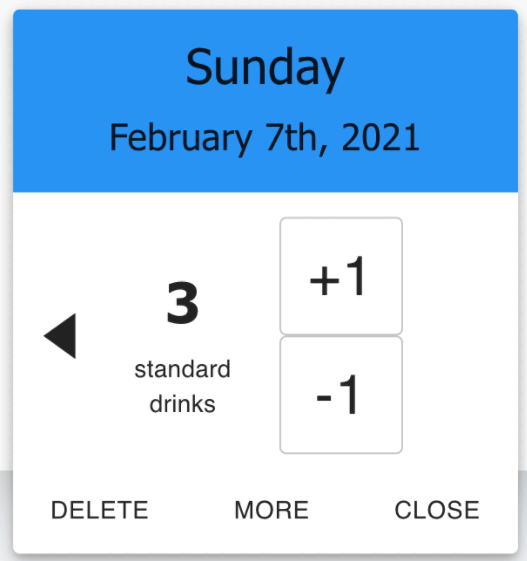Why counting your drinks is vital - even if you don’t have an AUD
Alcohol Use Disorders are a problem affecting a suspected 18 million Americans, and any individual falling into this category should actively look to reduce their alcohol consumption. However, even people who have a seemingly healthy relationship with alcohol should probably embrace the habit of counting their drinks - not least because smartphone apps now put the power of control in your pocket.
First and foremost, counting your drinks will help many individuals realize that their drinking habits are not quite as healthy as they assumed. After all, it’s very easy to downplay the frequency of your drinking habits or the amount of alcohol consumed during a single binge. Besides, when you take a more conscious approach to alcoholic usage, you will learn that it is far easier to step over the line into dangerous behaviors. Some of the key issues include;
-
A binge is considered anything more than 4 units for women (or 5 for men) in a two-hour period,
-
Drinking more than 7 units per week for women (15 for men) is considered unhealthy and excessive,
-
While mild impairment covers blood alcohol concentration levels up to 0.05%, a BAC of 0.09% would cause significant impairment.
A quick glance at the above stats shows why many people with problematic relationships with alcohol don’t realize it. Even if you do not have an AUD, your consumption may see some of the symptoms and negative repercussions of excessive drinking come to the surface.
Regular alcohol consumption may distract you from career goals, fitness routines, and even relationships. Moreover, it has been shown that the presence of serotonin and other neurotransmitters in alcohol can, per Healthline, worsen a drinker’s anxiety. Other issues can include a loss of motivation, poor sleep habits, increased illness, and financial problems.
Tracking your drinks is a simple assignment that can subsequently strengthen your relationship with alcohol in many ways. The most significant examples are;
-
Track your drinking over the course of a week to ensure that you are not regularly surpassing the weekly threshold,
-
Monitor your drinking over the festive period where the average person doubles their consumption,
-
Know exactly how much you’ve drunk on any given day to avoid reaching dangerous levels of toxicity,
-
Set yourself a healthy limit of how much you can drink on any given night - for the sake of your health and finances,
-
Quickly identify changing habits and increased alcohol consumption before new habits turn into problematic relationships.
-
Track alcohol consumption and calories to prevent any major impacts on your diet or healthy living strategies.
In short, counting your drinks will keep you in control of your personal situation at all times. This can subsequently allow you to avoid making daft decisions before, during, and after a drinking session. For example, you will be less likely to drive under the influence when you can see that you’ve had a couple of drinks, even if you feel OK. Given that one-third of road deaths involve alcohol, it’s not the type of mistake you can afford to make. Less damaging, yet embarrassing moves, could include contacting an ex.
Ultimately, tracking alcohol consumption levels is a technique that can be used by all drinkers, irrespective of how frequently they drink. Whether hoping to go sober, reduce your intake, or simply gain a better understanding of your drinking habits doesn’t matter - counting your drinks is a key ingredient in the recipe for success.

